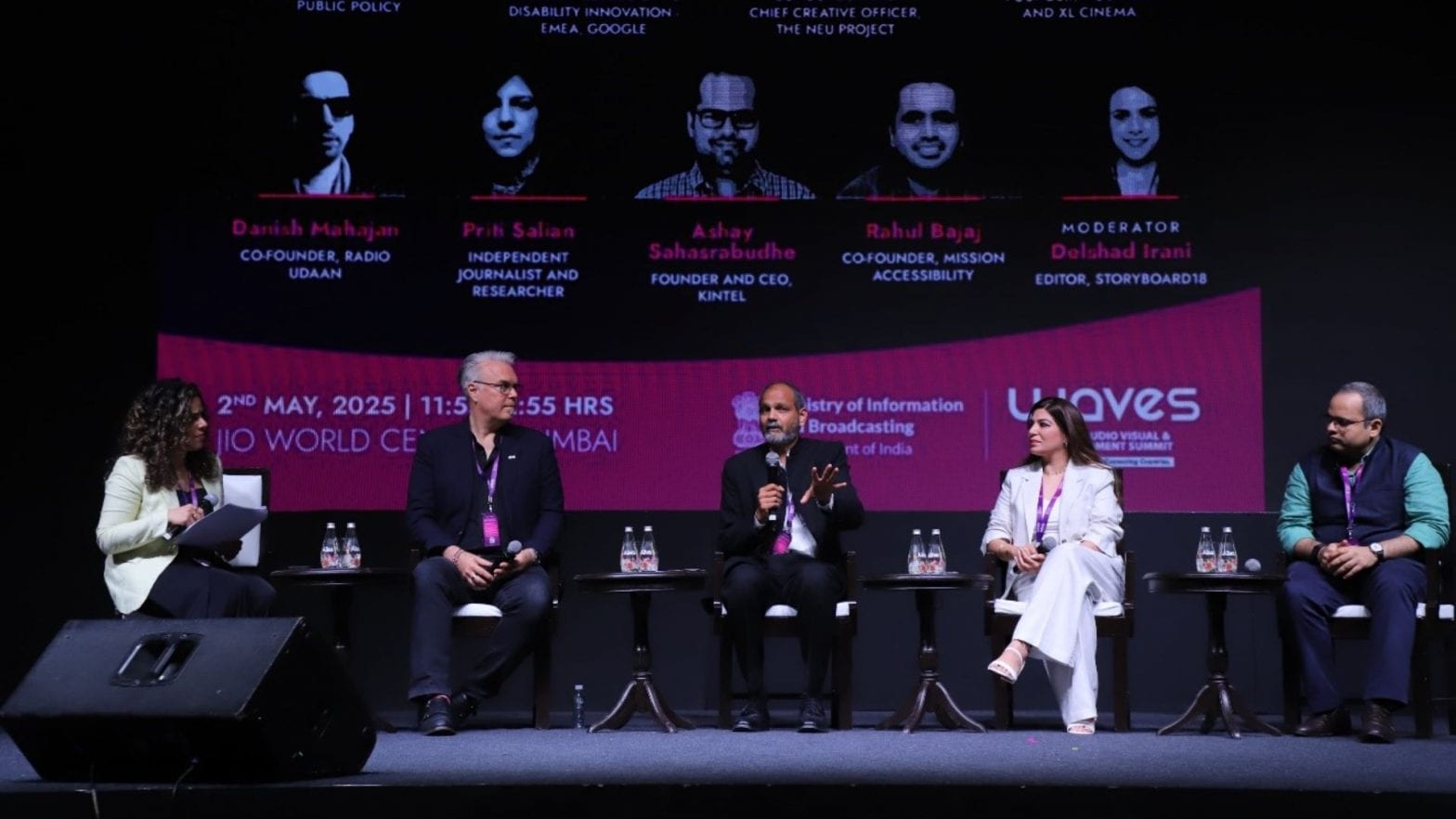A panel discussion on “Accessibility Standards in the Media & Entertainment Sector” took center stage at WAVES 2025 today. The session brought together leading voices from academia, technology, policy, law, and journalism to explore the evolving role of accessibility in content creation and distribution—and why it must be prioritized in India’s digital transformation journey.
Prof. Brij Kothari of IIT Delhi opened the session by emphasizing India’s leadership in redefining accessibility. “India is not just catching up; in many ways, we are leading the conversation on inclusive design,” he stated.
He highlighted that accessibility is no longer just a solution for the visually or hearing impaired, but rather a universal design philosophy that benefits over 1.4 billion citizens, reflecting the country’s vast scale and diversity.
Christopher Patnoe, Head of Accessibility and Disability Inclusion for EMEA at Google, shared a global perspective. He noted that while countries like the U.S. have strong legislation, enforcement remains lacking.
However, he expressed optimism about the European Accessibility Act and its potential for transformative change in the coming decade. “We’re laying the groundwork now for systemic change in how accessibility is implemented,” he explained.
Ashay Vinay Sahasrabuddhe, CEO of Kintel, highlighted the creative dimensions of accessibility in media. “Content is shaped through the unique lens of its creator, especially in film. To make content truly accessible, we must preserve the creative vision of the director—not dilute it with generic, automated solutions,” he said. Sahasrabuddhe emphasized the importance of translating a director’s vision meaningfully for all audiences, including those with disabilities.
Journalist Priti Salian spotlighted how technology and AI are accelerating accessibility efforts. “We’ve launched an AI-based channel featuring sign language interpreter avatars, and with advancements in audio description, what once took weeks now takes just 30 hours,” she shared.
She further stressed that technology alone isn’t enough—greater government support, public-private partnerships, and tendering mechanisms are essential to scaling accessible entertainment in India.
Rahul Bajaj, lawyer and advocate for inclusive content across platforms such as theatre, OTT, and television, stressed the need for stronger legal frameworks and industry collaboration.
Danish Mahajan, Founder of Radio Udaan, called for stricter implementation of existing policies and increased representation of persons with disabilities in policymaking and regulatory bodies. “Representation ensures that accessibility isn’t an afterthought—it’s embedded in the system,” he emphasized.
Together, the panel underscored a collective call to action: accessibility must be seen not just as a compliance requirement, but as a creative, ethical, and strategic imperative. As India stands at the crossroads of a content revolution, accessibility will be key to unlocking its full potential for every citizen.
